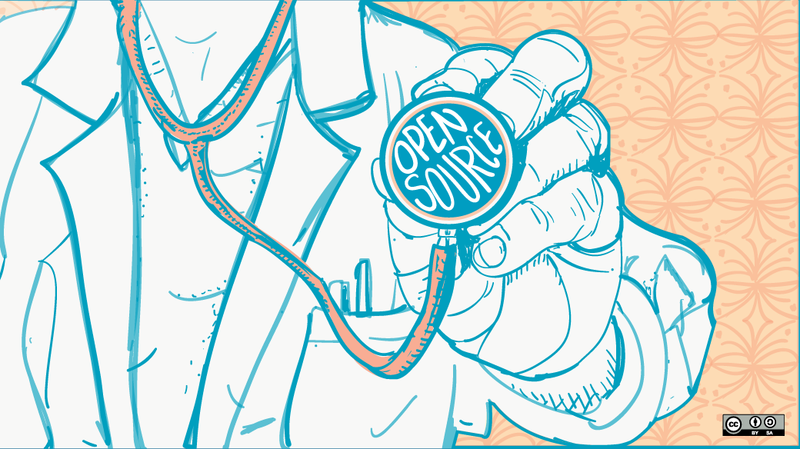Opinion: Wearables are creating useful data streams

(Image Credit: OpenSource.com)
A recent article in Bioscience Technology acknowledged how new technologies are generating significant amounts of data in the healthcare and life sciences sectors, and how this is viewed as a positive development for these markets. Data is no longer just being produced from lab equipment and corporate research projects, but useful information is also coming from consumer devices such as those from Apple and Google.
Due to an increasing popularity of wearable devices and mobile health/digital health applications, coupled with growth in the use of social media and analytics, this growth means that more data streams are now available to medical researchers looking to extract meaningful information.
Technology companies such as Apple and Google – who have historically never been in the healthcare market – are very much part of it now. Because of their reach, and the public’s widespread acceptance of the technology they use to gather data, large numbers of people are generating huge amounts of data which traditional institutions in these markets would love to get their hands on.
Data harmonisation and discovery are vital to extracting meaningful information
One of the critical factors in the use of this new data is that irrespective of how data is sourced, be it from a scientific journal, an Electronic Media Record (EMR), a social media post, or a wearable device, the data can only be analysed effectively if it has been semantically organised. In other words, you need to be able to make use of it.
Another major factor in the successful use of this data is the requirement for it to be 100% trustworthy, and for it to be usable and accessible for years to come. A clear data management strategy needs to underpin the use of such data, irrespective of its source (but especially if it’s coming from new, varied, and largely untried sources such as consumer wearables.)
Quite rightly in my view, the author of the Bioscience Technology article concludes that data harmonisation and discovery are vital to extracting meaningful information from the data. I would suggest this also needs to be underpinned by data integrity, as the more data there is, the greater the risk that a tiny percentage of it is unusable. The impact of unusable data could be huge on a healthcare organisation or research project.
At Arkivum, we have a significant focus on the healthcare market and understand the importance of securing the integrity and authenticity of valuable data. In fact, the security, provenance, and authenticity of healthcare data is our top priority and we have designed this into our long-term storage products. One of our customers, the Bristol Genetics Laboratory at Bristol Southmead NHS hospital, delivers routine genetic testing services to the South West region. The laboratory serves a population of approximately 5 million, as well as providing specialised services to the rest of the UK and internationally.
Data is no longer just being produced from lab equipment and corporate research projects, but useful information is also coming from consumer devices
The laboratory implemented a cloud-based service to facilitate the storing of gene-sequencing data and digital imaging from the 30,000 genetic investigations it conducts annually; which includes a wide range of sample types using a range of molecular and cytogenetic techniques. Many of these investigations, including those conducted using its Illumina NextSeq and MiSeq next generation sequencing (NGS) platforms, are resulting in a massive increase in the size of data sets (exacerbated by the fact that as the testing gets cheaper, clinicians are requesting more tests.)
Big data is becoming a very real challenge for all genetics laboratories, not just Bristol. Over the next two years, Bristol Genetics Laboratory will generate more than 30TB of data from NGS services alone. The true value of that data is not yet known, so it must be stored for the very long-term to be able to access and interrogate it over time as new data analysis techniques are developed.
How valuable do you think wearable data will be? Let us know in the comments.
 Interested in hearing industry leaders discuss subjects like this and sharing their IoT use-cases? Attend the IoT Tech Expo World Series events with upcoming shows in Silicon Valley, London and Amsterdam to learn more.
Interested in hearing industry leaders discuss subjects like this and sharing their IoT use-cases? Attend the IoT Tech Expo World Series events with upcoming shows in Silicon Valley, London and Amsterdam to learn more.
The show is co-located with the AI & Big Data Expo, Cyber Security & Cloud Expo and Blockchain Expo so you can explore the entire ecosystem in one place.

Leave a comment
Alternatively
This will only be used to quickly provide signup information and will not allow us to post to your account or appear on your timeline.